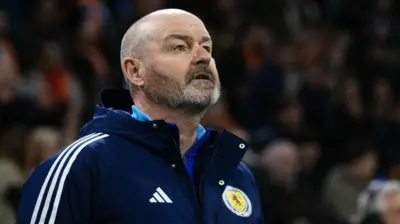We've updated our Privacy and Cookies Policy
We've made some important changes to our Privacy and Cookies Policy and we want you to know what this means for you and your data.
Little Richard: Rock 'n' roll pioneer dies
Image source, Reuters
Pioneering rock 'n' roll singer Little Richard has died at the age of 87, the musician's family has confirmed.
Little Richard's hit Good Golly Miss Molly made the charts in 1958. Other well-known songs include Tutti Frutti and Long Tall Sally.
The Beatles, Elton John and Elvis Presley all cited him an influence. The singer was inducted into the Rock and Roll Hall of Fame in 1986.
He died of bone cancer in Tullahoma, Tennessee his family said.
Little Richard was born as Richard Wayne Penniman in 1932.
He had his biggest hits in the 1950s and was known for his exuberant performances, shrieks, raspy voice and flamboyant outfits. He sold more than 30 million records worldwide.
Paying tribute after news of his death emerged, former Beatles drummer Sir Ringo Starr tweeted: "God bless Little Richard, one of my all-time musical heroes."
Chic co-founder Nile Rodgers said it was "the loss of a true giant", while Brian Wilson of the Beach Boys said his music would "last forever".
Richard's bass guitarist, Charles Glenn, told celebrity news website TMZ the singer had been ill for two months. He said Richard died at his home, with his brother, sister and son beside him.
Little Richard was one of 12 children, and said he had started singing because he wanted to stand out from his siblings.
"I was the biggest head of all, and I still have the biggest head," he told the BBC in 2008.
"I did what I did, because I wanted attention. When I started banging on the piano and screaming and singing, I got attention."
His music was embraced by both black and white fans at a time when parts of the US were still segregated, and concerts had a rope up the centre of the auditorium to divide people by colour.
An all-round force of nature
By Ian Youngs, BBC Arts and Entertainment Reporter
An electric performer, a flamboyant persona, a shrieking vocalist, an all-round force of nature - popular music hadn't seen the like of Little Richard before he emerged from New Orleans in the mid-1950s.
If there had been no Little Richard, a key part of DNA would have been missing from acts like The Beatles, Bob Dylan, David Bowie and Jimi Hendrix - all of whom idolised him.
With the likes of Chuck Berry and Elvis, he was one of the handful of US acts who concocted the primordial soup of blues, R&B and gospel that led to the evolution of rock 'n' roll in the 60s.
Standing at his piano with his bouffant hair and letting rip with full-throated voice on songs like Tutti Frutti, Long Tall Sally, Lucille and Good Golly Miss Molly, he was a gust of fresh air after a strait-laced post-war age.
Image source, PA Media
Richard was born in Macon, Georgia, on 5 December 1932. Growing up in the southern US state, he absorbed the rhythms of gospel music and the influences of New Orleans, blending them into his own piano-laden extravaganzas.
His father was a preacher who also ran a nightclub, and his mother was a devout Baptist.
"I was born in the slums. My daddy sold whiskey, bootleg whiskey," he told Rolling Stone magazine in 1970.
The singer left home in his teens after disagreements with his father who initially didn't support his music.
"My daddy wanted seven boys, and I had spoiled it, because I was gay," the showman later said.
Image source, EPA
Though openly homosexual for many years, Richard also had relationships with women. He married Ernestine Harvin, a fellow Evangelical, and later adopted a son.
He was known for drugs, hard drinking and sex parties - to which he would take his Bible.
In the late 1950s, he turned his back on music after seeing a fireball cross the sky while on stage in Sydney, Australia. It was the Sputnik 1 satellite returning to Earth - but Richard took it as a sign from God that he should immediately change his ways.
He signed up to Bible college in Alabama, but was soon asked to leave following allegations he had exposed himself to another student. Within five years, he was back on tour. A gospel album in 1961 was followed by forays into Soul.
After seeing cocaine kill his brother, Richard turned to religion again - and was eventually ordained as a minister in 1970.
The singer's complex attitude to his sexuality meant he wasn't widely viewed as a gay icon. After he was re-baptised as a Seventh Day Adventist, he renounced homosexuality, framing it as a temporary choice he had made.
Richard felt his musical influence was never acknowledged as it should have been, and blamed the deep racial prejudice in America at the height of his career.
But he was proud of his impact in crossing divides.
"I've always thought that rock 'n' roll brought the races together," the singer once told an interviewer. "Although I was black, the fans didn't care. I used to feel good about that."
The Rolling Stones, who opened shows for him, spoke reverently of his on-stage prowess. Sir Mick Jagger tweeted: "I'm so saddened to hear about the passing of Little Richard, he was the biggest inspiration of my early teens and his music still has the same raw electric energy when you play it now as it did when it was first shot through the music scene in the mid 50s.
"When we were on tour with him I would watch his moves every night and learn from him how to entertain and involve the audience and he was always so generous with advice to me.
"He contributed so much to popular music. I will miss you Richard, God bless."
Obituary: Little Richard, a flamboyant pioneer
The self-styled "king and queen of rock 'n' roll" - who inspired Elvis and The Beatles - dies at 87.
Top Stories
Features & Analysis
Most read
Content is not available








